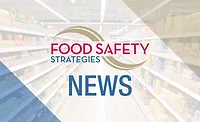Flying Under the Radar of FSMA: The Wild, Wild, West of Unregulated Farmers Markets
Do you know where that delicious hand-crafted granola that you bought last week at your neighborhood farmer’s market was manufactured? Are the ripe strawberries you bought last weekend from the pop-up stand on the side of the highway safe to eat? How about the broccoli that you received in your community-supported agriculture (CSA) box?
Background and Status of the Food Safety Modernization Act (FSMA)
According to recent data from the Centers for Disease Control and Prevention, each year about 48 million people (1 in 6 Americans) are sickened, 128,000 are hospitalized and 3,000 die from foodborne diseases. The Food Safety Modernization Act (FSMA), first enacted in 2011, is intended to enable the FDA to better protect public health by helping to ensure the safety and security of the food supply, enabling it to be more proactive rather than reactive with respect to food safety problems. The law also provides the U.S. Food and Drug Administration (FDA) with new enforcement authorities to help it achieve greater compliance with prevention and food safety standards to allow it to better respond to problems when they do occur.
FSMA is a very complicated statute, one that has been the subject of numerous articles, treatises and analysis and multiple rounds of discussions and revised rule promulgations by the FDA. FSMA authorizes several new regulations, including those to protect from risks associated from Salmonella, E. coil, and other pathogen contamination for farmers growing certain fruits and vegetables. Final FSMA regulations will be issued over the next year.
Impact of the FSMA on Local Farmers Markets and Farm Stands
Most direct-to-consumer farmers and other “small producers” are not currently required to register as a food facility under FSMA. FDA estimates that there are approximately 71,000 farms that only sell food products directly to consumers via farmers markets, roadside stands and CSA programs. However, some small farmers, including those that sell at your local farmers market or provide produce to your local CSA may be required to comply with FSMA depending on what they produce and the volume of their annual produce sales.
FDA’s re-proposed Produce Safety Rule proposes that farmers or farm mixed-type facilities with an average annual monetary value of produce sales of $25,000 or less will not be covered by the Produce Safety Rule of FSMA. Very small businesses, those with more than $25,000 but no more than $250,000 in annual produce sales, would have 4 years after the rule’s effective date to comply with most provisions. Small businesses, those with more than $250,000 but no more than $500,000 in produce sales would have 3 years after the rule’s effective date to comply with most provisions. All other farms would have 2 years after the effective date to comply with most provisions.
As an accommodation to the nation’s small farm owners who feared that the burden of complying with the stringent requirements in FSMA could put them out of business, Congress passed a statutory exemption (Tester-Hagan) for certain small farms that sell food locally. The Tester-Hagan exemption provides an exception for those farms that average less than $500,000 in annual produce sales AND sells a majority of what they grow directly to a consumer, either in-state or within 275 miles. If a farm qualifies for the Tester-Hagan exception, there are some FSMA rules with which it must still comply, like providing the consumer with the farm’s name and address at the point of sale, but it does not have to comply with the more detailed record-keeping and technical reporting requirements of the FSMA. Thus, this exception is critical to the future ability of farmers markets, roadside stands and CSAs to operate without compliance with the convoluted and onerous rules of the FSMA.
Future of FSMA With Respect to Direct-To-Consumer Sales
As well intentioned as FSMA may be, it largely ignores the very small producers and the portion of the country’s food supply that is currently being provided via local farmers markets, roadside stands and CSAs. As these types of shopping experiences become more and more commonplace, theoretically so do the risks that FSMA is intended to eliminate. The U.S. Department of Agriculture has stated that farmers markets are a significant source of America’s fresh fruit, vegetables and meats that are sold directly from the farmer/producer to consumer. Accordingly, it begs the question whether there is a need for increased regulation, especially in light of the fact that Americans are eating more fresh fruit and vegetables for greater nutritional benefits. However, such increased and intense regulation would likely strangle and ultimately incapacitate smaller direct-to-consumer producers and farms—the population that tends to sell the bulk of their produce supplies directly to consumers at farmers markets and farm stands.
In creating FSMA, the government attempted to balance the impact and importance of the FSMA statutory scheme with the burden on small businesses. Additionally, the concern regarding the impact this statutory scheme would have on small businesses was demonstrated when it sought public comment on what burdens the additional compliance, fees and penalties would impose on small businesses, and whether the Agency should alleviate such burdens. This is evident in the important Tester-Hagan amendment, which essentially exempts most vendors at local farmers markets and roadside stands from the onerous compliance requirements of FSMA.
Thus, FSMA’s focus on large food processing operations that impact millions of people appears to be a well-reasoned approach and a good step in creating a safer national food supply. However, until there is better data to support the need to more intensely regulate small direct-to-consumer producers, it is less clear that there is such a need for stringent regulations and requirements. The excessive compliance costs that could put small producers out of business, the short supply line from farmer to consumer reduces risk and eases traceability, complying with the spirit of FSMA. It is anticipated as FDA announces additional changes to the Rule, we are likely to see tweaking of exemption definitions, either to broaden or narrow its scope depending on whether there is a marked increase or decrease in contamination incidents. This highlights another salient fact. Just because a small producer is not under the auspices of FSMA does not mean the public is without protection from the food they supply. Food safety will continue to be monitored by county health departments throughout the country, whose findings will in turn help direct the rulemaking effort.
Anne Cherry Barnett and J. Alan Warfield are attorneys at Polsinelli, LLP. Polsinelli’s Food & Agriculture Industry Group is composed of a team of attorneys from every legal practice area and who each have a focused background in the food industry.
Looking for quick answers on food safety topics?
Try Ask FSM, our new smart AI search tool.
Ask FSM →








